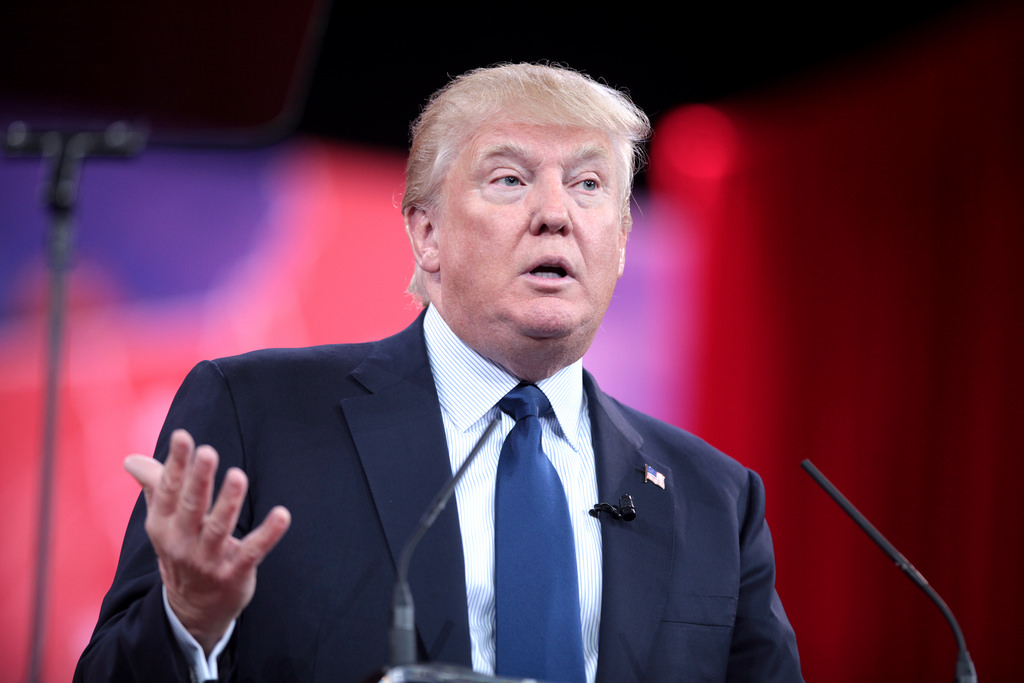On the campaign trail in April 2016, President-elect Donald Trump made a bold promise to voters at the Indiana State Fairgrounds: If he were elected, not only would Carrier not close their Indianapolis plant, but he would penalize them with tariffs if they attempted to do so. Eight months later, it appears at first glance the Republican candidate has achieved an early victory for his supporters by keeping the air conditioner manufacturing plant in Indianapolis. Then, as if those promises were simply a nostalgia-riddled dream, the facade crumbles and the agreement’s details are made clear.
Despite Trump’s usual bluster that a penalty would be incurred on companies that moved jobs overseas, the end result of the Carrier deal will be the opposite. Tax breaks to the tune of $7 million, courtesy of the state of Indiana, were offered to incentivize the company to retain jobs. In the end, an incentive is exactly what this is. Regardless of the headlines extolling Trump for saving 1,100 jobs, another 600 are still moving from the plant to Mexico as planned and 800 jobs from a nearby plant in Huntington, Indiana, will follow suit. Suffice to say, this is a net loss for the Indiana job market.
Facing the realities of a global economy, Carrier was moving jobs to a cheaper labor market in order to stay competitive in making gas furnaces. If American consumers can buy cheaper products from overseas suppliers, they’ll take that option unless the government steps in. The hard truth facing those workers is that the costs imposed on the company to keep jobs stateside will eventually erode margins, and those jobs will be lost anyway. Even if Trump manages to make deals like this yearly, the siphoning of low-skill manufacturing labor will continue, just at a slower pace. Worse, though, is that now companies have set a precedent that Trump will gladly line their pockets to fund that slower pace in return for a short-term public relations stunt.
Of all the people to come out against the deal’s implications, Sarah Palin could be the most shocking, and certainly taps into the confusing tone of 2016 politics. But putting aside partisanship, her accusation that this is “crony capitalism” does ring true. By subsidizing the corporation in order to go against market efficiency, Trump is effectively picking winners and losers in the marketplace, a concept conservatives have previously criticized President Obama for.
One would wonder then, if rather than giving corporate welfare to the Carrier clan, it would be better to have allowed them to move the plant overseas and begin using that $7 million in taxes to retrain the workers who lost their jobs. Additionally, rather than lower the corporate tax rate from 35 percent to 15 percent, as per Trump’s Treasury Secretary pick, Steven Mnuchin, perhaps it would be wiser to maintain the current tax rate and facilitate a retraining program for workers in cities dotting the Rust Belt. On this front, Trump should heed the warnings of those at his alma mater, Wharton School at the University of Pennsylvania, who remind us of the economic stagnation that would result from an attempt to wind back the clock on American progress.
Throughout the 2016 presidential race, Trump did what he does so well: marketing. The Carrier deal is simply another step in that fateful direction, sans conservative fiscal policy, or a clear objective other than to win over voters. While Paul Ryan and other conservatives fall in line behind their new rubber-stamping PR guru, others have begun to speak out, both conservative and liberal alike.
Both sides of the political spectrum can find fault in Trump’s deal-making, be it the government interference preventing market efficiency, or the subsidizing of corporations with no guarantee of job retention in the long-run. As the Trump administration takes the executive helm, it’s important to remember that increased global trade overwhelmingly benefits the United States as a whole, and by simply capturing those advantages, our government can ease the burden that globalization brings on the individual.
Kyle Rempfer is a sophomore government & politics and Russian major. He can be reached at krempfer@terpmail.umd.edu.



